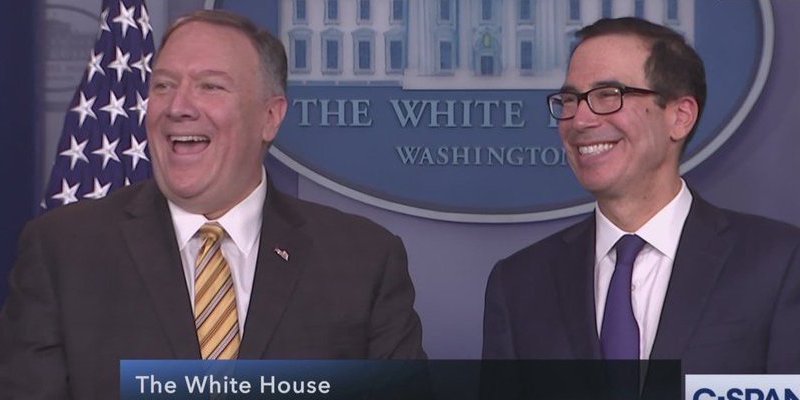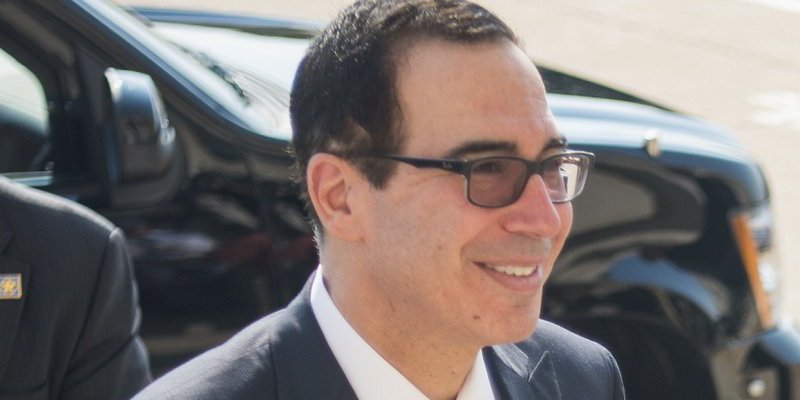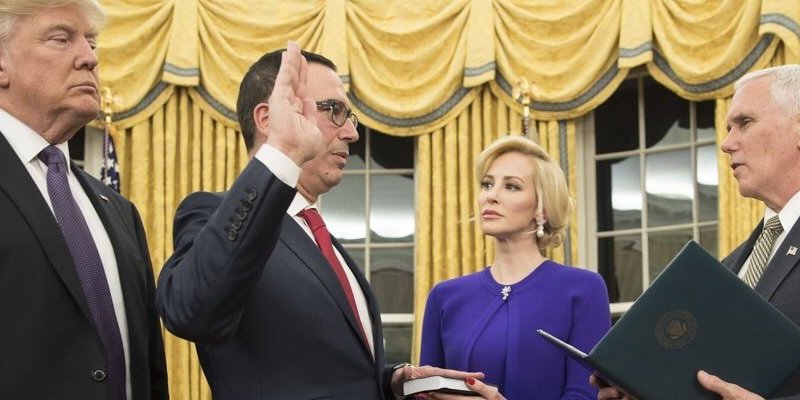-

FOIA Roundup: Avenues to accountability in the age of COVID-19
We’re offering a free training session and plenty of ways to demand transparency in the midst of a pandemic and the movement for police accountability.
-

Proof Steve Mnuchin did enjoy the eclipse, Sean Hannity’s real estate collection, a revamped CIA card game, and other FOIA wins this week
There have been a few interesting FOIA discoveries this week, including the extent of Fox News’ Sean Hannity’s real estate empire and photographic evidence of Treasury Secretary Steve Mnuchin admiring that eclipse back in August - despite his claims otherwise.
-

Treasury produces one page memo to justify claim that Trump tax cut will generate $1.8 trillion in revenue
Back in December, in response to reporting of Treasury claims that the proposed Trump tax cuts would generate $1.8 trillion in revenue, we requested the reporting and analysis that led to that conclusion. In response, the Treasury produced a single-page memo, which appeared to be the exact same document referenced in the article included in our request.
-

Even Congress wasn’t allowed details of FBI’s Steven Mnuchin probe
Last year, a letter from the FBI indicated that Treasury Secretary Steven Mnuchin tied to an ongoing federal investigation. In response, Senator Sherrod Brown called for the FBI to release any relevant details so that Congress could make an informed decision. His request was rejected - a week after Mnuchin was already confirmed.
-

FOIAing the Trump Administration: After a year, aspects of Trump appointees’ ethics agreements begin to expire
Trump has been in office for one year, which means some of his earliest appointees will soon be free of certain promises in their ethics agreements. This week, we take a look at how you can investigate Trump appointees’ ethical obligations using public records.
-

Even to FBI Director J. Edgar Hoover, Muhammad Ali was “untouchable”
An incident from Muhammad Ali’s Federal Bureau of Investigation file shows that no less than Director J. Edgar Hoover himself doubted the Bureau’s ability to get charges against Ali to stick.
-

Redacted Friday: Missing ethics oversight, ComputerCop follow up, plus save on FOIA swag
This week, we’re finding transparency never rests with important work being done following up on an old privacy scandal targeting young people, plus a look at how even a no responsive documents response can help show when public officials are asleep at the wheel.
-

What happens when the CIA shuts down a front organization?
To accomplish its mission, the Central Intelligence Agency will undertake missions utilizing assets, agents, and officers under official and nonofficial covers. When these missions require the use of an organization, the Agency will resort to the use of proprietary companies and organizations as a means of maintaining cover or accomplishing goals that the U.S. Government isn’t able to openly support. Eventually, the Agency has to terminate these proprietaries. The story of how that happens is where things get interesting.
-

Despite reform efforts, state and local police are still teaming up with federal law enforcement to seize millions
In recent years many states have begun to to reform civil asset forfeiture, by either reducing the percentage of money police are allowed to keep, or reducing the number of situations in which assets are allowed to be seized. While some of these efforts have been more successful than others, a practice called Equitable Sharing continues to undercut these efforts and keep the worst excesses of police seizure alive.
-

The CIA’s emergency Cold War cash reserves
In 1951, the federal government began paying increased attention to emergency planning, both for natural disasters, warfare or even invasion of the United States. This included a plan to provide for short-term emergency funds for critical agencies like the CIA.